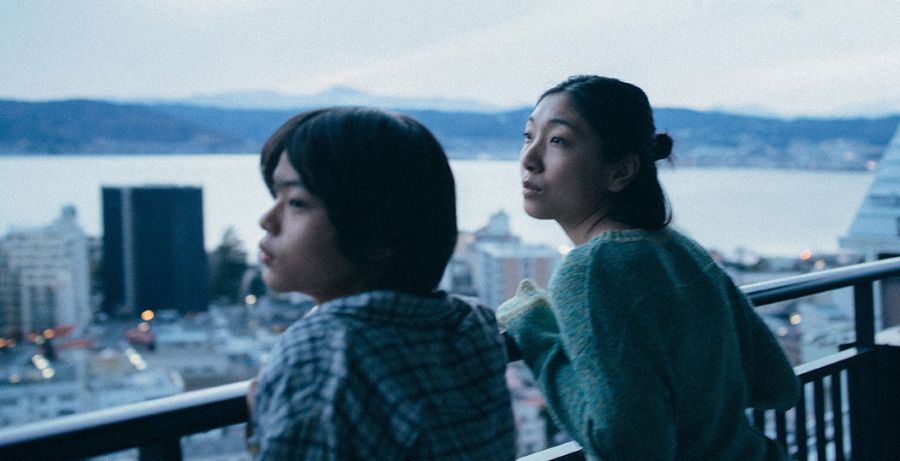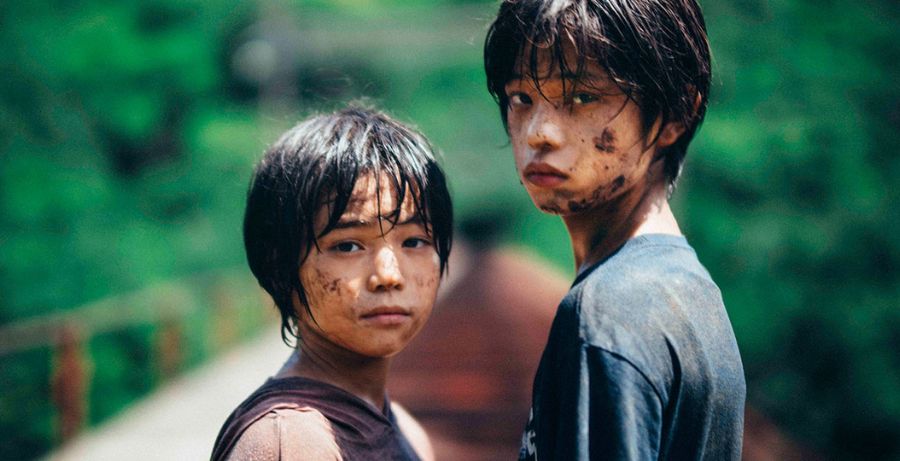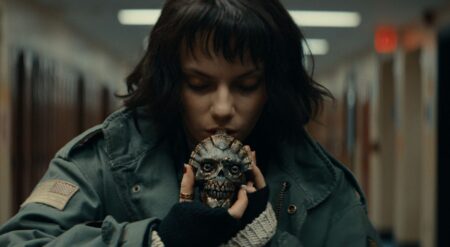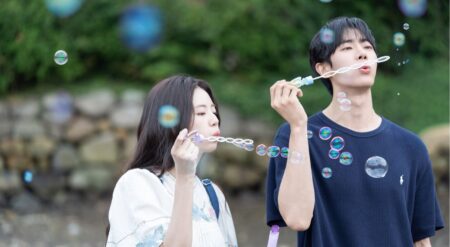After stints in France and Korea, Hirokazu Kore-ada returns to his homeland with a dense, intricate thicket of shifting perspectives, which marks his greatest effort since his 2018 Palme d’Or winner. Monster is equal parts tender, reserved, and painfully revealing, slowly giving us pieces of a story that powerfully suggests that truth is often filtered through society’s gaze. At its core, the film is about bullying but manifests as much more, subtly interrogating familial dysfunction, systemic irreconciliation, and homosexuality, all of which coalesce to create the eponymous monster. It unfolds as a triptych, replaying many of the same events from varying viewpoints. Still, above all, Monster is an experience that refuses to play its hand early, offering multiple meanings and interpretations. In classic Kore-ada fashion, each vantage point provides just as many questions as answers.
The film begins with a burning building—one of many stirring images— a visual motif the film circles back to when shifting to the following perspective. The building is the site of a sleazy escort bar where local teacher Mr. Hori (Eita Nagayama) is rumored to frequent. Many have heard this tale, including single mother Saori (Sakura Ando, who continues her stellar work from Kore-ada’s Shoplifters), who is quick to believe her son, Minato (Soya Kurokawa), when he reluctantly claims Mr. Hori humiliated and hit him.
A furious, concerned Saori barges into the office of the principal (Yûko Tanaka)— a woman so emotionally muted and glazed over from the grief of her grandson’s suspicious passing—demanding action be taken. She’s met with an insincere, bureaucratic apology that only makes her more incensed, especially when Mr. Hori claims her son bullied another child, the sensitive and precocious Eri (Hinata Hiiragi). Monster then corroborates and dispels each of their claims, providing more insight into each character’s lives, personalities, relationships, and dilemmas, all conflicting in the most tragic ways and giving seed to the most heartbreaking of misunderstandings.
Yet, remarkably, this multi-perspective approach doesn’t repeat many of the same scenes but provides something new and riveting in each narrative stream—ulterior moments and events that allow the audience to fill in the gaps themselves, rendering the film’s first and second acts radically different. It’s a choice that keeps the experience fresh and engaging. It indicates a filmmaker who respects his audience, confiding in their abilities to glean new insights and transform the narrative on their terms. There’s nary a gratifying twist to be found, as Monster avoids sentimentality at each turn, even when it arrives at its final, powerful nub of truth and recognition.

Kore-ada’s strong visual language anchors the story, poignantly juxtaposing a suffocating cityscape against the lush, liberating forest surrounding it. Graceful wides and languid zooms permeate the film, crafting images that leave a mark, most notably a muddy, rain-drenched window with hands hopelessly clawing at it. Ryuichi Sakamoto’s final score only serves to reinforce Kore-ada’s observant lens, with his simple piano compositions lending nuance and heart to each sequence. It all works in tandem to create something that fully earns its emotions, beckoning viewers to determine how they feed society’s monster in explicit and implicit ways.
The cast possesses rare integrity and calmness, as Ando, Nagayama, and the boys never overaccentuate the tragedy of their situations, bringing forward earnest, lived-in performances that are truly relatable. It doesn’t take long to invest in these characters. However, the story they’re in can sometimes be a little far-fetched, emphasizing its mystery at the cost of its sharp commentary. Nonetheless, Monster is a rare film that teems with humanity, using its narrative structure to uncover something prescient and devastating about modern morals.
Monster screened as part of the 2023 Toronto International Film Festival.
Monster
-
Rating - 8/108/10
TL;DR
The cast possesses rare integrity and calmness, as Ando, Nagayama, and the boys never overaccentuate the tragedy of their situations, bringing forward earnest, lived-in performances that are truly relatable.







